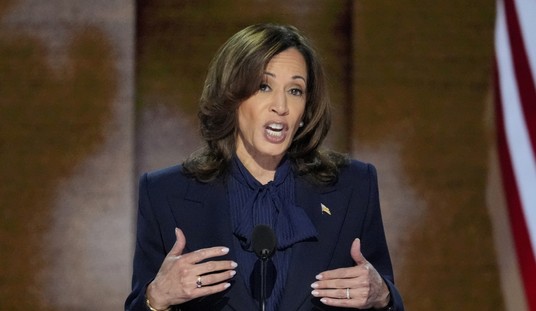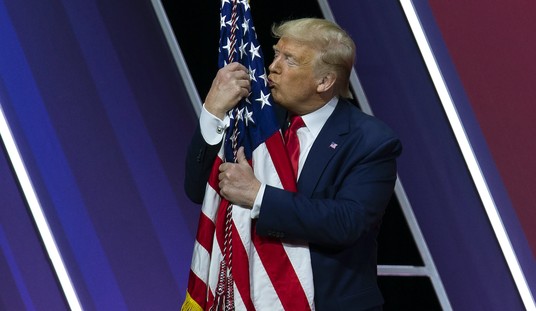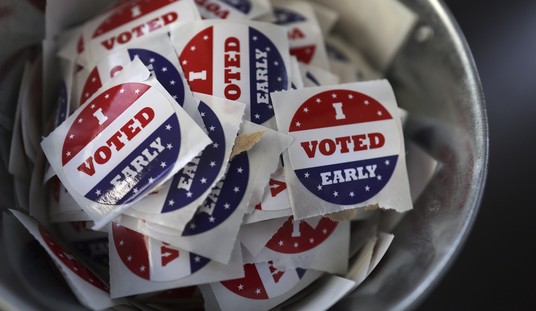As we’ve discussed the upcoming Ted Cruz speech and interesting subject has come up. Several writers, myself included, have characterized Reagan’s speech at the 1976 RNC convention as his eventual endorsement of Gerald Ford. We’ve used it in the context of saying that we hope Ted Cruz can deliver that kind of speech without the endorsement. This morning in my post on the subject, a comment was made that, in fact, Reagan had never endorsed Gerald Ford. And I summarily dismissed the assertion.
But the invocation of Reagan scholar Craig Shirley’s name caused me to go back later and check it out.
This is the text of Reagan’s 1976 speech.
Thank you very much. Mr. President, Mrs. Ford, Mr. Vice President, Mr. Vice President to be — the distinguished guests here, and you ladies and gentlemen: I am going to say fellow Republicans here, but also those who are watching from a distance, all of those millions of Democrats and Independents who I know are looking for a cause around which to rally and which I believe we can give them.
Mr. President, before you arrived tonight, these wonderful people here when we came in gave Nancy and myself a welcome. That, plus this, and plus your kindness and generosity in honoring us by bringing us down here will give us a memory that will live in our hearts forever.
Watching on television these last few nights, and I have seen you also with the warmth that you greeted Nancy, and you also filled my heart with joy when you did that.
May I just say some words. There are cynics who say that a party platform is something that no one bothers to read and it doesn’t very often amount to much.
Whether it is different this time than it has ever been before, I believe the Republican Party has a platform that is a banner of bold, unmistakable colors, with no pastel shades.
We have just heard a call to arms based on that platform, and a call to us to really be successful in communicating and reveal to the American people the difference between this platform and the platform of the opposing party, which is nothing but a revamp and a reissue and a running of a late, late show of the thing that we have been hearing from them for the last 40 years.
If I could just take a moment; I had an assignment the other day. Someone asked me to write a letter for a time capsule that is going to be opened in Los Angeles a hundred years from now, on our Tricentennial.
It sounded like an easy assignment. They suggested I write something about the problems and the issues today. I set out to do so, riding down the coast in an automobile, looking at the blue Pacific out on one side and the Santa Ynez Mountains on the other, and I couldn’t help but wonder if it was going to be that beautiful a hundred years from now as it was on that summer day.
Then as I tried to write — let your own minds turn to that task. You are going to write for people a hundred years from now, who know all about us. We know nothing about them. We don’t know what kind of a world they will be living in.
And suddenly I thought to myself if I write of the problems, they will be the domestic problems the President spoke of here tonight; the challenges confronting us, the erosion of freedom that has taken place under Democratic rule in this country, the invasion of private rights, the controls and restrictions on the vitality of the great free economy that we enjoy. These are our challenges that we must meet.
And then again there is that challenge of which he spoke that we live in a world in which the great powers have poised and aimed at each other horrible missiles of destruction, nuclear weapons that can in a matter of minutes arrive at each other’s country and destroy, virtually, the civilized world we live in.
And suddenly it dawned on me, those who would read this letter a hundred years from now will know whether those missiles were fired. They will know whether we met our challenge. Whether they have the freedoms that we have known up until now will depend on what we do here.
Will they look back with appreciation and say, “Thank God for those people in 1976 who headed off that loss of freedom, who kept us now 100 years later free, who kept our world from nuclear destruction”?
And if we failed, they probably won’t get to read the letter at all because it spoke of individual freedom, and they won’t be allowed to talk of that or read of it.
This is our challenge; and this is why here in this hall tonight, better than we have ever done before, we have got to quit talking to each other and about each other and go out and communicate to the world that we may be fewer in numbers than we have ever been, but we carry the message they are waiting for.
We must go forth from here united, determined that what a great general said a few years ago is true: There is no substitute for victory, Mr. President.
To me, the “we must go forth from here united” constitutes an endorsement. A soft, mushy, half-hearted endorsement, but still an acknowledgement that the GOP is going forth under Gerald Ford’s leadership and that winning is all that is important. Upon closer reading, though, I’m not so sure. Reagan devotes his speech in praise of the GOP platform. His only nod to Ford is for his personal kindness. This is the way Craig Shirley describes it:
Four evenings after the convention began, after Rule 16-C went down to narrow defeat (which would have forced Ford to name his running mate before the balloting) and after the Reagan nomination went down to defeat, 1,187 to 1,070 — and with Ford winning the nomination by just 59 delegate votes — Reagan got to finally address the convention. He gave a history-altering address, laying the groundwork for his win in 1980 and his momentous presidency.
The fight was over and Ford’s men knew after watching Reagan’s extemporaneous remarks that they’d just dodged a bullet.
Reagan spoke of the platform as a “banner of bold, unmistakable colors and no pale pastels”; he spoke of “horrible missiles of destruction.” He said of the Soviets, “this is our challenge,” and he spoke of there being “no substitute for victory.” He spoke of many things, about freedom and tyranny and the future. He did not speak of or even endorse the candidacy of Gerald R. Ford for president of the United States.
And, in fact, that is pretty much exactly how Reagan approached the 1976 election.
…David S. Broder, the highly regarded Post columnist, later wrote that the 1976 Republican convention was unique in political history, because it was the only time the delegates heard two acceptance speeches. Reagan later declined all pleas from Ford to speak on his behalf in key states.
Ford won the delegates and his party’s nomination, but he lost the election.
Reagan campaigned for individual candidates but he never acted as a Ford surrogate or campaigned on his behalf.
So, in retrospect, I was over hasty in my dismissing of what has turned out to be a different, and probably more accurate, view of what actually happened in 1976.
















Join the conversation as a VIP Member